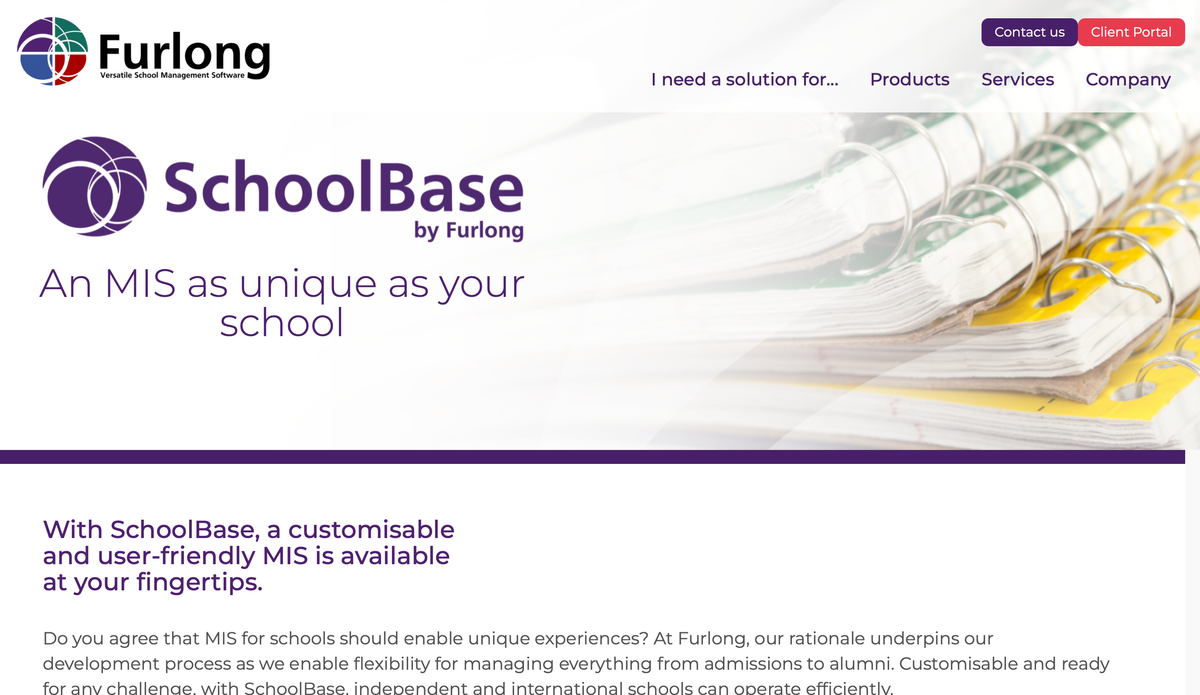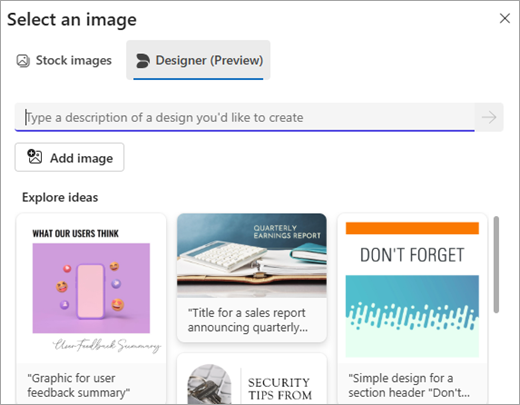SchoolBase MIS: A Fresh Approach to School Management in 2024
Discover how SchoolBase MIS is reshaping school management for independent schools in 2024. From streamlined admissions processes to enhanced parent communication, explore how this comprehensive system adapts to modern educational needs while maintaining the personal touch that independent school...

Why Modern Schools Need a Flexible MIS
School administration has evolved significantly over the past decade. Contemporary independent schools coordinate multiple interconnected responsibilities, including academic progress monitoring, comprehensive pastoral care documentation, financial management and essential safeguarding protocols.
Traditional Management Information Systems (MIS) often struggle to accommodate the diverse needs of individual schools. Educational institutions frequently find themselves constrained by rigid systems that fail to align with their established workflows. This misalignment can create operational challenges that affect administrative efficiency and potentially impact educational delivery.
Several key challenges emerge when examining administrative processes in independent schools:
- Implementing cohesive assessment strategies that integrate various academic frameworks and reporting methods
- Administering sophisticated financial arrangements, including customised fee structures and scholarship programmes
- Facilitating effective information exchange amongst teaching staff, student support teams and families
- Ensuring secure and compliant documentation practices whilst maintaining appropriate information accessibility
Independent schools have naturally developed distinctive approaches to address these administrative requirements, informed by their institutional experience and specific community needs. While the Independent Schools Inspectorate framework establishes consistent regulatory standards, schools may implement varied methodologies to achieve compliance and operational excellence.
An effective administrative solution should therefore accommodate these diverse methodologies whilst ensuring data security and integrity. Such systems need to support established practices, facilitate continuous improvement, and enable innovation without imposing technical constraints.
Understanding SchoolBase: More Than Just Another MIS
SchoolBase offers an integrated approach to educational data management that acknowledges the interconnected nature of school operations. The platform's comprehensive functionality supports the complete student lifecycle, encompassing initial admissions processes through to ongoing alumni engagement.
Cloud-based infrastructure provides secure remote access whilst reducing local maintenance requirements. This approach to data management, as explored in our analysis of administrative efficiency, can help schools minimise data redundancy and streamline their administrative processes.
Key features of this integrated approach include:
- Configurable admissions processes that adapt to institutional requirements
- Comprehensive assessment frameworks supporting diverse reporting needs
- Integrated pastoral care and student wellbeing documentation
- Sophisticated financial tools for fee management and accounting
- Extended community engagement and development capabilities
The system's role-based interface organisation enhances user experience across different school functions. Staff members access information specific to their responsibilities through customised views, allowing boarding staff to focus on residential matters while teaching personnel can concentrate on academic data and assessment records.
The adaptability of administrative systems warrants careful consideration. Educational institutions can tailor digital forms, operational workflows and analytical reports to align with their established methodologies, maintaining institutional identity whilst enhancing efficiency. This approach is particularly relevant when managing distinctive aspects of school life, from bespoke assessment programmes to comprehensive co-curricular portfolios.
Advanced analytical tools enable schools to derive valuable insights from their operational data. Through structured data collection and analysis, institutions can better understand patterns in student performance, resource allocation and administrative processes. The effectiveness of these analytical capabilities, however, depends significantly on thoughtful data organisation and consistent input protocols.
The Three Pillars: Staff, Student, and Parent Portals
The multi-portal ecosystem offers a structured approach to stakeholder engagement within educational communities. This framework facilitates distinct interfaces for different user groups, enabling efficient information sharing while maintaining appropriate access controls and data privacy.
Staff Portal: Streamlining Academic and Administrative Tasks
Within this multi-portal ecosystem, the staff interface provides a centralised environment for accessing and managing educational resources. The following features complement the role-based organisation previously discussed:
- Secure, immediate access to essential student information, including attendance records and health requirements
- Flexible assessment tools that support diverse grading approaches and reporting formats
- Comprehensive scheduling functionality for coordinating educational and extracurricular programmes
- Structured documentation systems for student welfare and behavioural support
Student Portal: Empowering Independent Learning
To support student autonomy and academic development, the dedicated student interface provides essential tools for:
- Assignment management with electronic submission capabilities
- Personalised schedule views incorporating venue details and staff contacts
- Academic performance tracking through consolidated feedback and assessment records
- Centralised repository for educational materials and curriculum resources
Parent Portal: Enhancing School-Home Partnership
The family communication interface facilitates meaningful engagement between school and home by offering:
- Integrated scheduling system for parent consultations and school activities
- Efficient attendance management and leave request procedures
- Secure messaging options for communicating with academic and pastoral staff
- Comprehensive access to student assessment records and developmental feedback
The effectiveness of integrated portal systems stems from their synchronised data management capabilities. When academic staff record assessment information, the system automatically updates corresponding student progress records and parent communications channels. This coordinated approach to information sharing supports educational development whilst maintaining data security through carefully configured access permissions.
Adapting to Different School Environments
The independent school sector encompasses institutions with distinct operational requirements and educational philosophies. Management systems must therefore offer sufficient flexibility to accommodate these varied approaches whilst maintaining robust functionality and data integrity.
Different school structures require distinct administrative approaches. Day schools benefit from streamlined attendance monitoring and parent engagement tools, whilst boarding schools can utilise extended functionality for residential programmes, evening activities and leave arrangements. This adaptability ensures that staff members across various roles can efficiently manage their specific responsibilities.
- House staff can arrange their interface to emphasise residential management, including student welfare information and emergency contact details
- Academic staff can organise their view around curriculum delivery, assessment management and student support functions
- Leadership teams can configure their access to highlight institutional performance indicators and regulatory requirements
International schools present additional administrative complexities, including the coordination of multiple curricula, diverse time zones and varied cultural practices. Administrative systems can support these requirements through localised interfaces and adaptable assessment frameworks that accommodate different educational standards concurrently. This functionality is particularly relevant for institutions offering multiple qualification pathways, such as A-Levels alongside the International Baccalaureate.
Reporting functionality can be tailored to reflect each institution's unique character and communication style. Traditional schools may configure formal documentation with established terminology and layouts, whilst forward-thinking institutions can implement dynamic, data-driven presentations. This flexibility enables schools to preserve their distinctive voice whilst benefiting from enhanced analytical capabilities.
Financial management capabilities extend to accommodate sophisticated fee arrangements common in independent schools. The system supports diverse payment schedules, supplementary charges for specialist instruction, and activity-related expenses, whilst maintaining comprehensive audit records. This structured approach to financial administration helps ensure accurate tracking and transparent documentation of all transactions.
Looking Ahead: The Future of School Management
Administrative systems in education continue to develop in response to the evolving requirements of independent schools. Contemporary management solutions demonstrate how flexible, adaptable systems can support diverse institutional practices whilst maintaining data security and operational excellence. This approach enables schools to preserve their established methodologies while benefiting from enhanced administrative capabilities.
Essential aspects to consider when evaluating administrative systems include:
- Compatibility with established educational software and learning platforms
- System architecture that accommodates institutional growth and evolving requirements
- Documentation capabilities that support diverse inspection frameworks
- Protected remote access with comprehensive data protection protocols
When evaluating administrative system transitions, educational institutions may find the following considerations valuable:
- Conduct thorough assessment of existing workflows and identify areas requiring improvement
- Engage with representatives from teaching, administrative and support teams to gather diverse perspectives
- Evaluate system capabilities through practical demonstrations using institution-specific examples
- Create a structured transition strategy with measurable objectives and defined timelines
Successful implementation of administrative systems depends on establishing productive, enduring relationships between educational institutions and technology providers. Beyond technical specifications, providers should demonstrate a thorough understanding of independent school operations and maintain responsiveness to evolving educational requirements and regulatory frameworks.
The value of administrative systems extends beyond their current functionality to their capacity for supporting long-term institutional development. When evaluating solutions, schools benefit from considering both immediate operational requirements and the system's potential to accommodate future educational innovations and regulatory changes.




